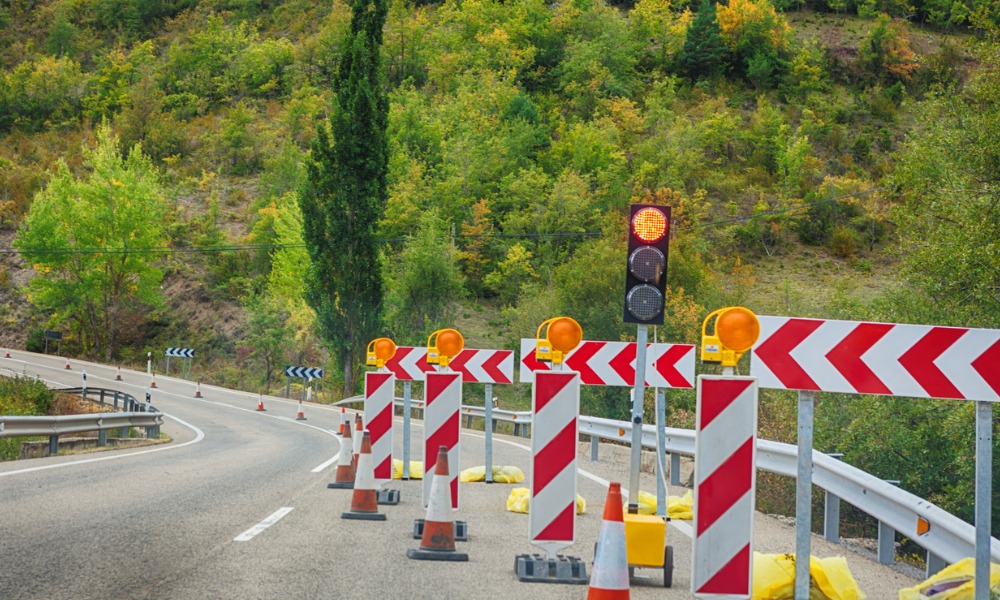Spokesperson says 'police of signalization' is required in the province

In Quebec, the road signage industry is under scrutiny as the United Steelworkers (USW) calls for significant safety reforms. With a concerning rise in accidents and fatalities among road signallers, the union says urgent action is needed to prevent further tragedies on construction sites across the province.
"Since 2008, we have witnessed 19 fatalities, and since 2006, safety incidents have risen by a staggering 400 percent,” says Martin L'Abbée, a union officer and USW spokesperson. "The gravity of the situation cannot be overstated."
L'Abbée elaborated on the lack of enforcement of existing regulations within the industry, citing concerns about companies operating without proper permits, equipment, or trained personnel. "There are approximately 5,000 individuals working in road signallers in Quebec, and the absence of regulatory oversight puts both workers and the public at risk," claims L'Abbée.
The union is advocating for comprehensive changes, including stricter enforcement of safety regulations, improved training programs, and the establishment of a dedicated oversight committee for the road signage industry. "We need a new organization, like the priority committee, to act as the 'police of signalization' and ensure compliance with safety standards," L'Abbée asserts.
Despite the presence of multiple government agencies responsible for enforcing safety regulations, L'Abbée noted their inefficiency and lack of resources. "There are eight organizations tasked with overseeing road signage compliance, but they are failing to adequately police the industry," he explains. "We need dedicated inspectors empowered to enforce regulations and hold non-compliant companies accountable."
One of the union's proposed solutions is the implementation of a whistleblower hotline to report safety violations anonymously. "We want to empower workers to speak up about unsafe conditions without fear of retaliation," says L'Abbée. "By engaging with government agencies and industry stakeholders, we can work towards a safer working environment for all road signallers."
Concerns were also raised about the adequacy of training programs for road signallers, with L'Abbée highlighting instances of inadequate education and certification processes. "Some workers are obtaining certification through online courses that fail to provide sufficient training," he says. "We need standardized, in-person training programs that prioritize safety and competency."
L'Abbée reiterated the union's commitment to improving safety standards in the road signage industry. "Our goal is simple: to prevent further tragedies and ensure that every worker returns home safely at the end of the day," he affirms. "By advocating for systemic changes and fostering collaboration between stakeholders, we can create a safer working environment for road signallers across Quebec."
As the union continues to push for reforms, the spotlight remains on the Quebec government and industry leaders to heed their calls and prioritize the safety of road signallers throughout the province.





